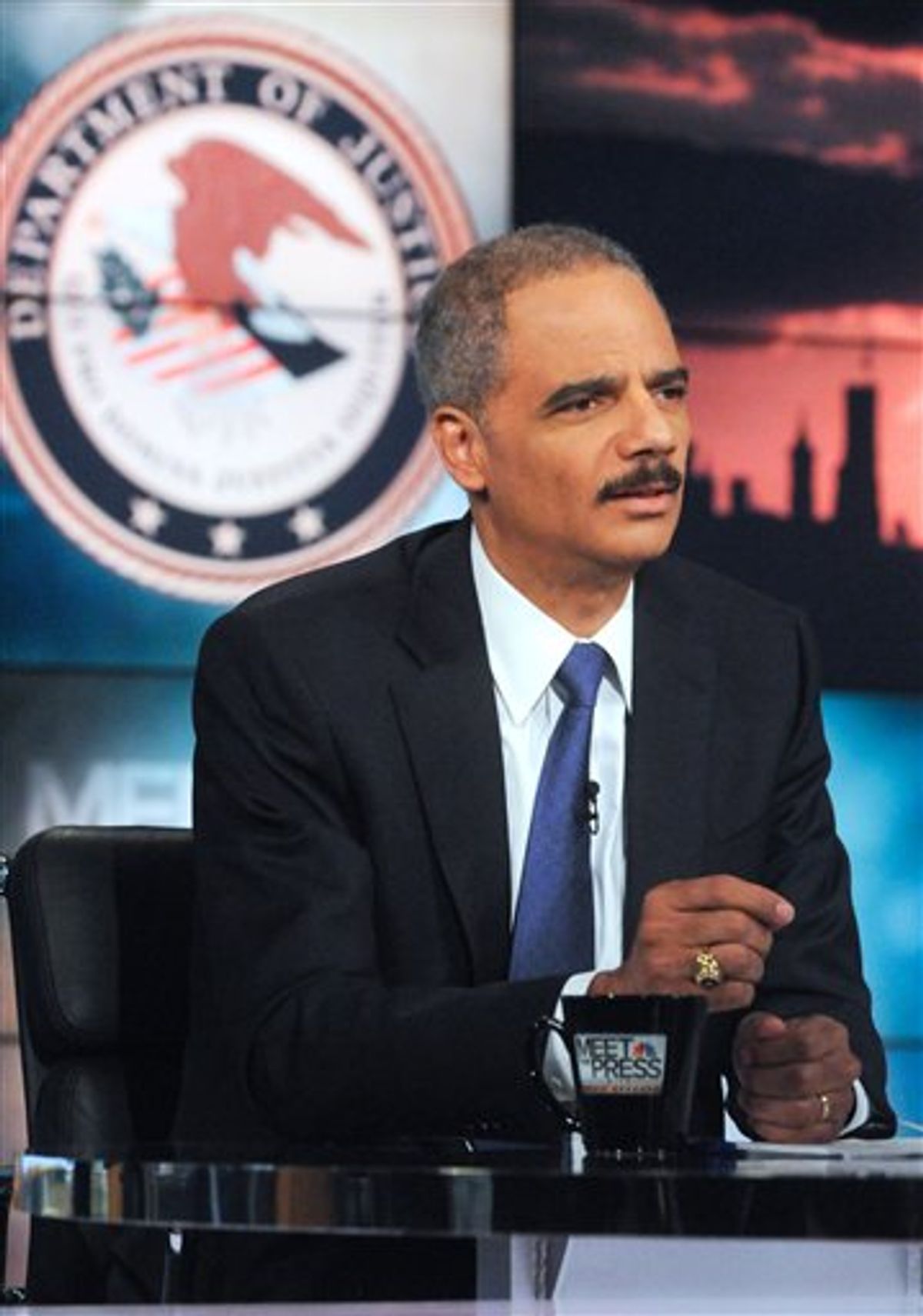On Tuesday, Attorney General Eric Holder announced the Justice Department was investigating the causes of the BP oil spill and was prepared to purse both civil and criminal charges "if warranted."
Some context for understanding possible points of interest for DoJ investigators comes from a preliminary report released last week by Robert Bea, the director of University of California at Berkeley's Catastrophic Risk Management Center: "Failures of the Deepwater Horizon Semi-Submersible Drilling Unit." Bea's report, which he describes as "preliminary insights ... based upon more than 500 hours of analyses of currently available data provided by approximately 60 informants," places joint responsibility for the disaster on both BP and the regulatory authority, MMS.
Here's the most relevant excerpt:
- Based on the information available to me thus far, I believe the Deepwater Horizon failure developed due to:
- improper well design (configuration of well tubulars),
- improper cement design and placement (segmented discontinuous cement sheath, minimal volume placed adjacent to lost circulation zone),
- flawed Quality Assurance and Quality Control (QA / QC) -- no cement bond logs, ineffective oversight of operations,
- bad decision making -- removing the pressure barrier -- displacing the drilling mud with sea water 8,000 feet below the drill deck,
- loss of situational awareness -- early warning signs not properly detected, analyzed or corrected (repeated major gas kicks, lost drilling tools, including evidence of damaged parts of the Blow Out Preventer [BOP] during drilling and/or cementing, lost circulation, changes in mud volume and drill string weight),
- improper operating procedures -- premature off-loading of the drilling mud (weight material not available at critical time),
- flawed design and maintenance of the final line of defense -- including the shear rams of the Blow Out Preventer (BOP) and the associated electrical and hydraulic equipment.
I'm not sure at what point any of the multiple instances of BP incompetence cross the line into criminal malfeasance, but we will certainly be learning more about that in the weeks and months to come. In the meantime, BP CEO Tony Hayward says: "I want my life back." I don't think he's going to get it.



Shares